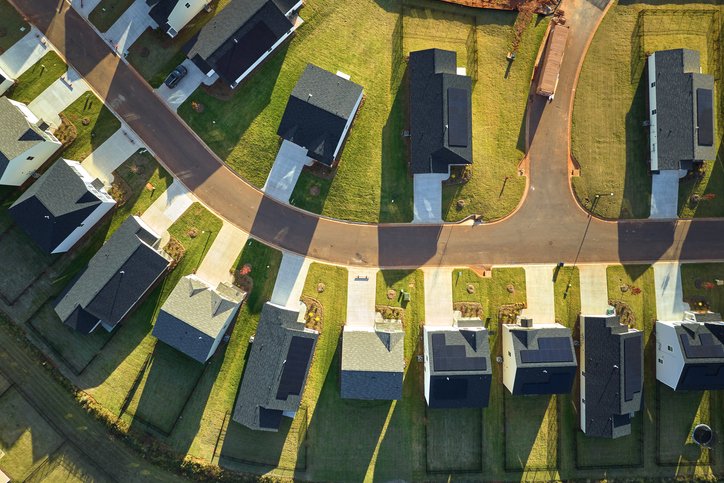The Good, the Bad, the Ugly: What Are Your HOA’s Powers?
You’ve definitely heard of it, likely dealt with it, and maybe don’t think so highly of it. It’s your neighborhood-friendly overlord—the homeowners’ association (HOA).
Imagine your HOA sends a letter warning you to remove your basketball hoop because your garage is attached to your home (looking at you, Houston).[1] You might ask: Can they really do this?
We’re here to answer your most-pressing HOA questions.
How is my HOA administered?
A board of directors administers your HOA. Homeowners elect these board members in accordance with the HOA’s declaration of covenants and bylaws.[1]
And this board’s authority is primarily derived from the HOA’s declaration of covenants, articles of incorporation, bylaws, and the Texas Property Code. The declaration is essentially a contract between the HOA’s members, under which they agree to comply with certain covenants and restrictions and pay assessments for maintaining common areas.[2]
By purchasing a home within a community governed by an HOA (an association community), the homeowner is deemed to accept the declaration’s terms and obligations.[3]
The HOA’s board owes a fiduciary relationship toward its association community, and therefore must act reasonably within the association community’s best interests.[4]
What are my HOA’s powers?
In interpreting association powers, Texas courts afford substantial deference to an HOA’s governing documents.[5] And HOAs are generally empowered to exercise any powers conferred by these documents, unless they conflict with federal or state law.[6] Practically speaking, as we said, the HOA is your neighborhood-friendly overlord.
The duties and powers of an HOA’s board, granted under the Texas Property Code and the community’s declaration, include (1) enforcing covenants, (2) adopting budgets, (3) assessing and collecting members fees, (4) appointment of agents to act on the association’s behalf, (5) maintaining of common areas, and (6) acting on behalf of the association in legal matters.[7] And to correct violations, HOA boards are empowered to impose penalties or take legal action.[8]
Can the HOA really regulate the exterior appearance of my home?
Unfortunately (and maybe also fortunately, depending on your neighbors)—Yes.
Texas HOAs have considerable discretion in adopting and enforcing restrictions related to your home’s structure and improvements, as long as the community’s declaration grants authority for the contemplated regulation.[9]
This could potentially include anything from exterior color, fences, lawns and artificial turf, parking, and trash can placement, to above-ground pools and mail boxes.
Notably, HOAs are limited or prevented from restricting a few things, such as (1) political signs, (2) religious displays, (3) roofing materials, (4) solar panels, (5) stand-by generators, and (5) drought-resistant landscaping and water-conserving natural turf.[10]
Three major laws that changed Texas HOAs in 2023
House Bill 886 (Assessment Lien Filing)
Effective September 1, HB 886 requires a single-family HOA, before filing a lien or notice of lien against a homeowner, to send three written notices:
(1) First notice: sent via class mail or email.
(2) Second notice: sent via certified mail (return receipt requested), at least 30 days after the first notice was sent.
(3) Third notice: notice of assessment lien; cannot be sent until at least 90 days after the second notice was sent.
An “assessment lien,” is a lien, lien affidavit, or other lien instrument evidencing the nonpayment of assessments or other charges owed to your HOA.
The bill also details what these notices must include for them to be valid (such as providing at least a 30-day period in which the homeowner can pay the owed amount without any additional charges).
House Bill 1193 (Anti-Discrimination Based on Section 8 Status)
Effective September 1, HB 1193 requires HOAs to remove any restrictions based on a tenant’s payment method. The intent behind this bill is to increase protection for tenants who rely on assistance to pay for housing.
House Bill 614 (Fines and Enforcement Policy)
Effective January 1, 2024, HB 614 requires HOAs to establish enforcement policies detailing types of restrictions and the schedule of fines for each. By increasing clarity in HOA policies, the intent is to ensure that communities remain compliant and consistent when it comes to enforcing rules.
[1] Tex. Prop. Code §§ 202.001, 204.004, 209.00593.
[2] Id. at § 202.001(1).
[3] See, e.g., Village of Pheasant Run Homeowners Ass'n, Inc. v. Kastor, 47 S.W.3d 747 (Tex. App.—Houston [14th Dist.] 2001).
[4] Tex. Prop. Code §§ 209.0052, 82.103.
[5] Id. at § 204.010.
[6] Id. at § 204.010(19).
[7] Id. at § 204.010.
[8] Id. at § 202.004.
[9] Id. at § 202.003(a).
[10] Id. at §§ 202.007, 009-010, 018, 019.
Cobb & Johns are Special Forces for Complex Property and Government Disputes.

